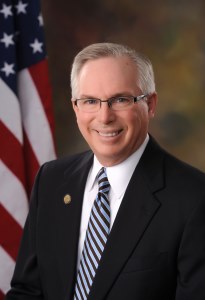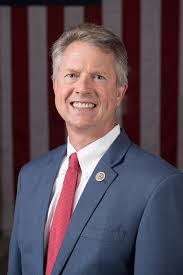Good morning everyone:
It’s been an extraordinary week in which all of our worlds have been turned upside down by the coronavirus, and there’s no telling how this could influence the rest of this year’s legislative session.
We hope this week’s roundup finds you in good health and you are taking all the precautions needed to stay healthy.
As a side note to the college basketball fans in the audience, we hope you’re enjoying cable reruns of past college basketball tournament games to make up for what was lost this year. We are and, frankly, it’s not entertaining.
We won’t waste a lot of your time dwelling on what we all know and get moving with this week’s news, starting with the most significant stories we published and other stories you may have missed but need to know…
- Republican House leadership floated a new way to pass the constitutional amendment on abortion.
- Republican. Rep. Don Hineman introduced a compromise plan to pass a constitutional amendment on abortion.
- Lawmakers are considering a proposal to expand efforts to reduce electric rates as a development incentive.
- The Legislature has blocked Gov. Laura Kelly’s proposal to return money to local governments with the idea of lowering property taxes.
- Legislators are cool to the idea of using a constitutional amendment to keep money from being diverted from transportation to the state general fund.
- A House committee added money to the budgets for leadership offices, most of which will go to Republicans.
- A new audit shows Kansas ranks last nationally in state spending for the arts.
- Gov. Laura Kelly named a new Supreme Court justice.
- Cities tangled with Amazon over a bill allowing robotic delivery vehicles on sidewalks and roads.
- Banks and credit unions reached an accord on a potentially expensive tax break.
- A House committee reworked the transportation plan crafted by Gov. Laura Kelly’s administration.
- Bio capsules on each of the judges seeking a seat on the Kansas Court of Appeals.
Now onto other news….
Abortion amendment spending
Kansans for Life outspent its rivals at Planned Parenthood in January as the debate over the constitutional amendment on abortion heated up.
The new ethics report out for January shows that KFL spent $14,132 compared to Planned Parenthood, which spent $4,145.
The Kansas Catholic Conference chipped in another $446, bringing the amount spent campaigning for the amendment to more than $14,500.
KFL prevailed in the Senate, which passed the amendment reversing a state Supreme Court ruling that found the right to an abortion is protected by the state constitution.
However, the amendment is now four votes short in the House, where it has idled since early February with no indication that it might move in the immediate future.
KFL spent the second most in January, trailing Americans for Prosperity, which spent $53,313.
Other top spenders in January were the Kansas Cable Telecommunications Association ($9,783), Kansas Electric Cooperatives ($8,629), Kansas Dental Association ($4,746) and Kansas Beer Wholesalers ($4,582).
Overall, lobbyist spending declined in January from same time a year earlier.
Lobbyists reported spending about $210,000 in January, down from about $265,000 in January 2019.
Coronavirus update
The seventh and eighth Kansas cases of coronavirus were identified Saturday, including one in Johnson County and another in Franklin County.
The coronavirus case in Johnson County involves a woman in her 50s associated with Johnson County Community College.
It was the first case in Johnson County of a local transmission.
The county is working to identify any close contacts of the individual.
The individual is in the hospital and doing well, and her family is in quarantine.
Meanwhile, another case was identified in Franklin County on Saturday.
No coronavirus in Legislature
House Speaker Ron Ryckman Jr. sent out an email to House members on Saturday saying no one in the Legislature has been diagnosed with coronavirus.
“We would like you to know the Legislature has no confirmed cases of coronavirus,” the speaker said in his email.
“Please continue to practice good hygiene and if you are experiencing any symptoms, stay home.”
Hineman faces primary
Scott County Commissioner Jim Minnix on Friday filed to run against state Rep. Don Hineman in House District 118.
Minnix is running as a Republican, setting up a primary against one of the leading moderates of the Kansas House.
The have both filed to run as Republicans, according to the secretary of state’s office.
Minnix could not be reached for comment Saturday night, but in an interview with the Hays Post he talked about guns rights, abortion and property taxes.
“You can count on me to fight for our rural Kansas values and always vote to protect life, defend the Second Amendment and support our agriculture community,” Minnix told the publication.

Minnix didn’t specifically mention the abortion amendment, which Hineman opposed because the election would be held in August and not November when more voters cast ballots.
Hineman is now completing his sixth term in the House after first getting elected to the Legislature in 2008.
He served as the House majority leader for two years until conservatives gained control of the chamber after the 2018 election.
The 118th House District is decidedly conservative, covering all or parts of Gove, Lane, Logan, Scott, Sheridan, Trego, Graham, Rooks and Thomas counties.

Kris Kobach carried it with 66% of the vote in the 2018 governor’s race.
President Donald Trump won the district with 84% of the vote in 2016, former Gov. Sam Brownback won it with 72% of the vote in 2014 and Mitt Romney received 83% of the vote in 2012.
Hineman’s last contested election was the 2010 primary, which he won with about 83% of the vote.
Hineman raised $7,350 last year and finished 2019 with almost $78,000 in the bank,
Amazon deal
E-commerce giant Amazon came to a deal with Kansas cities last week to allow the company’s automated delivery vehicles to run on sidewalks and streets.
The two sides agreed to amend legislation allowing the vehicles but giving local governments the ability to prohibit them in the interest of public safety.
It would be up to local governments to define what public safety means as set out in the legislation. The bill does not consider the delivery robots to be motor vehicles.
The original bill proposed by Amazon would have barred local governments from keeping the approximately 100-pound vehicles out of their communities.
There was an unsuccessful effort in the Senate Commerce Committee to curtail the amendment so it allowed local governments to prohibit the vehicles under any circumstance.
Sen. John Doll wanted to give local governments more power to restrict the vehicles than what was agreed to by Amazon and the League of Kansas Municipalities.
“To tie the hands of local government dealing with their particular domain is wrong-headed,” Doll said.
Matt Hickam, the lobbyist for Amazon, emphasized that the company wants to foster good relations with cities.
“The bottom line is Amazon wants to be a good public partner with the local communities,” Hickam said.
“They’re not going to force themselves into a community unless they have that good working relationship,” he said.
Ultimately, senators opted to go with the amendment Amazon and the cities agreed to before passing the bill out to the full Senate.
Virtual legislating
So what happens if the coronavirus shuts down a legislature before all of its work is done for the year?
Lawmakers in some states could work from home, just like many people in the private sector.
The National Conference of State Legislatures has this interesting look at state plans for continuity of government in case of emergencies.
Some of this is rudimentary Government 101, except for the two states that allow virtual legislative sessions.
As it turns out, Oregon and Wisconsin allow their legislatures to meet remotely in the event of an emergency.
Eight years ago, Oregon voters approved a constitutional amendment that allows lawmakers to participate by electronic or other means in the event of catastrophic disaster.
In this case, catastrophic disaster can mean a public health emergency.
NCSL also reports Wisconsin has a statute that allows lawmakers to meet in a virtual session in case of an emergency or imminent threat.
Here is NCSL’s state-by-state breakdown showing how legislatures are responding to the coronavirus threat.
Distracted driving
The Senate Transportation Committee last week considered legislation prohibiting handheld cellphone conversations behind the wheel.
Drivers could use a phone if the vehicle is stopped or if they are calling law enforcement or trying to prevent imminent injury or property damage.
The bill would extend beyond mobile phones, covering any electronic device behind the wheel. It wouldn’t apply to hands-free conversations on a phone.
“What we don’t want is you holding the device up to your ear or playing with it while you’re driving,” said Republican Sen. John Skubal, who backs the bill with Democratic Sen. Pat Pettey.
A first conviction would carry a $60 fine, and for a second conviction within five years the fine would be $120.
A third and subsequent conviction would result in a fine of $250.
Testimony from last week’s hearing indicated that the fine would not be a moving violation.
“Our constituents need to know that the Kansas Legislature takes distracted driving seriously and (is) willing to take this issue seriously for the road safety of Kansans,” Pettey told the Transportation Committee last week.
Currently, 22 states ban handheld phone conversations, according to the Insurance Institute for Highway Safety.
Kansas only bans cellphones for young drivers with a learner’s permit and intermediate license holders.
The state bans texting behind the wheel, but law enforcement says that can be difficult to enforce.
Some lawmakers questioned why the bill doesn’t address other distractions such as eating, grooming or reading.
Supporters of the bill say there is language in the bill that does address other types of distractions.
The bill says drivers shall “exercise due care in operating a motor vehicle” and “shall not engage in any actions that distract” drivers from safely operating a vehicle.
There were 622 crashes in Kansas related to cellphones during 2018, state transportation statistics show. Six people were killed, and 269 were injured.
There were 202 crashes involving other electronic devices during 2018. No one was killed, and 88 injuries were reported.
The Kansas Department of Transportation estimates that 6% of all Kansas drivers use their phones behind the wheel.
“If you think of the number of drivers you interact with everyday, and know that slightly less than 10% don’t have driving as their No. 1 priority, this bill will certainly help curb that number,” said Chris Bortz, traffic safety program manager for the Kansas Transportation Department.
Republican Sen. Kevin Braun suggested phasing the bill in, starting with warnings and an education campaign before launching an all-out enforcement effort.
Pettey said she thought authorities were already educating drivers and that law enforcement needs the tools to deal with inattentive driving.
PAC ad attacks Marshall
The political action committee largely financed by billionaire entrepreneur Peter Thiel has launched an attack against Republican Congressman Roger Marshall in the U.S. Senate race.

The ad was paid for by Free Forever PAC, which is largely bankrolled by Thiel.
Last fall, Thiel along with conservative commentator Ann Coulter threw a fundraiser for Republican U.S. Senate candidate and former Kansas Secretary of State Kris Kobach in New York City.
The PAC, created last fall, has raised $105,000. Thiel has put $100,000 in the PAC.
The Marshall campaign blasted the ad.
“This ad buy shows Kobach knows Dr. Roger Marshall is winning,” said Marshall campaign manager Eric Pahls.
“That’s why he’s calling in favors from Hollywood. It’s just more of the same from a desperate career politician,” he said.
Pahls said Marshall has voted with the president 98% of the time. Pahls said the congressman has supported the border wall every time he’s had the chance.
“Kobach is desperate. That’s why he’s lying.”
Now the ad:
Judicial salaries
Proposals to raise judicial salaries are moving along at different paces in the Kansas Legislature.
The proposal to put $17 million into salaries for judges and other court staffers was in the budget approved by the House Appropriations Committee.
In the Senate, the Ways and Means Committee delayed putting the money in the budget for now.
About $7 million of the proposed increases would provide for a 19% salary increase for judges.
The other $10 million requested would go to nonjudges, raising salaries from 1.7% to 17.9%.
Judicial salaries have been an issue in recent years because they are among the lowest in the country.
A group of judges recently sued to force the Legislature to put more money into judicial salaries, but the Supreme Court dismissed the litigation.
“We have neglected the judicial branch for a long, long time,” Senate Minority Leader Anthony Hensley told the committee last week.
“I don’t have any problem delaying this until omnibus, but I do think this is something we need to do this year.”
Sen. Carolyn McGinn, the committee chair, noted that the House put the money into its budget.
“It will certainly be an item for discussion,” she said.
Capitol protests
More protests erupted last week over the Legislature’s failure to act on Medicaid expansion. Here’s coverage from KSN Television and The Associated Press.
Susan B. Anthony Day
Lawmakers considered a bill making Feb. 15, Susan B. Anthony Day. Here’s coverage from KSNT and the Capital Journal.
Judicial appoinment
Gov. Laura Kelly appointed Kellie E. Hogan to fill a vacancy in the 18th Judicial District, which covers Sedgwick County.
Hogan is an attorney with Kansas Legal Services, where she has spent more than two decades representing clients in a wide range of cases involving child-in-need-of-care, juvenile offenders, adoption, divorce and disabilities.
Hogan graduated from the University of Kansas in 1992 and earned her law degree from KU in 1995.
She replaces Terry Pullman, who passed away last November.
Judges in Sedgwick County are elected and serve four-year terms.
The Division 16 position to which Hogan is being appointed will be on the ballot this year.













